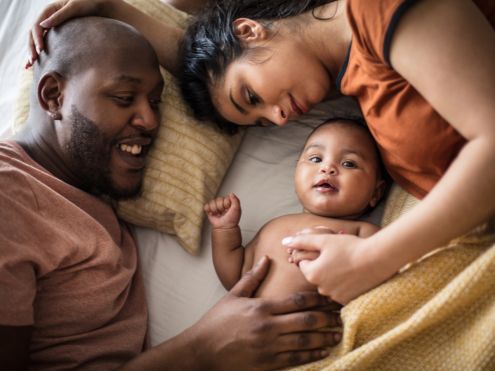Can you learn to love anyone?
With soaring divorce rates and more single households than ever before, perhaps it’s time to rethink our approach to finding love, says Dr Robert Epstein

What do you believe is fundamentally wrong with the way we approach love? For most Westerners, our relationships are the one area of our lives that we are happy to leave entirely to chance. We plan our education, our careers, our finances, our retirement, but we’re still uncomfortable with the idea that we should plan our love lives. Yet, for many centuries, romantic love was viewed as a form of madness, and passion wasn’t considered a legitimate basis for marriage until recent times.
So why do we place such an emphasis on passion? The problem starts with fairy tales. They foster some very resilient myths. The myth of The One is another very destructive fallacy. We believe The One is out there for us, if only we can find him or her. We think once we find The One, he or she will never change, and neither will we. How do these myths affect us? They influence how we select a partner. If you think you love someone right away, you’re in love with an idealised version of the person, or, like Shakespeare’s Duke Orsino, you’re just ‘in love with love’. The fairy tales encourage us to look for the lightning bolt, but relationships based on this kind of phenomenon almost always end in tatters – historically, this kind of instantaneous bond was seen as a kind of madness. Also, when our expectations are violated – when our partner cheats or gains weight or stops sleeping with us – we get depressed or angry. We rarely put in the effort needed to keep things going.
So, if we accept that our current model for finding love doesn’t work, is there another model that does? Sixty per cent of the world’s marriages are arranged by matchmakers or parents, and in perhaps half of these marriages, people learn to love each other over time. A study conducted in India in the 1980s found the ‘love’ in love matches started to fade after about two years, but the love in the arranged marriages grew gradually, surpassing the love in the love marriages at about the five-year mark. Ten years on, the love in the arranged marriages was twice as strong.
But what about sexual attraction? Physical attraction is important, especially early on in a relationship. But it’s also important to know how to distinguish lust from love. When physical attraction is too strong, it can be blinding, and many people who think they are in love are actually just in lust.
Do you think we should practise arranged marriage in the West? No, not at all – but it is possible for us to take control of our love lives. We needn’t leave love entirely to chance. We used to leave our relaxation and peace of mind entirely to chance, but then we learned to package Asian relaxation techniques to suit our own needs. I believe we can do the same with the process of learning to love.
How do we begin to take control over our love lives? First, we need to accept that there is no one ‘right’ partner predestined for us. The soulmate myth is rubbish, and harmful. We need to look around us with new eyes, new assumptions and new skills.
So we can learn to love anyone? I don’t believe you can fall in love with absolutely anyone, but there are many people around us with whom we could very deliberately create lasting love. Two people need to be basically compatible and at least somewhat attracted to each other
Surely it’s not as easy as simply widening the field of suitable people? No, certainly not. We also need to think about whether we believe that love is a magical, mystical thing over which we have no control, or whether there are skills we can learn that will help us. Recent studies in Mexico, Italy and the UK are revealing neurological and chemical correlates of the love state. The biggest myth of all about love is that it can’t be studied scientifically.
Doesn’t your method make falling in love a calculated commodity? Isn’t this a more prosaic alternative to ‘real’ love? Passionate love is already a commodity, sold to us by film-makers, novelists and songwriters. Unfortunately, it’s sold to us in a form that is both unrealistic and inaccessible to most people. I’m proposing that we put romantic love on a steadier footing. It’s depressing to think that ‘real’ love has to choose you. I’m too much of an optimist to leave any form of happiness to chance.
Dr Robert Epstein is a visiting scholar at the University of California, San Diego. For more information on his work, visit his website.
More inspiration:
Read 3 signs you are ready for a proper relationship by Madeleine Mason on LifeLabs
Learn How to Save Your Relationship with Sarah Abell's LifeLabs Practical Wisdom online course, here. You can try a free 3-day taster trial first too.









